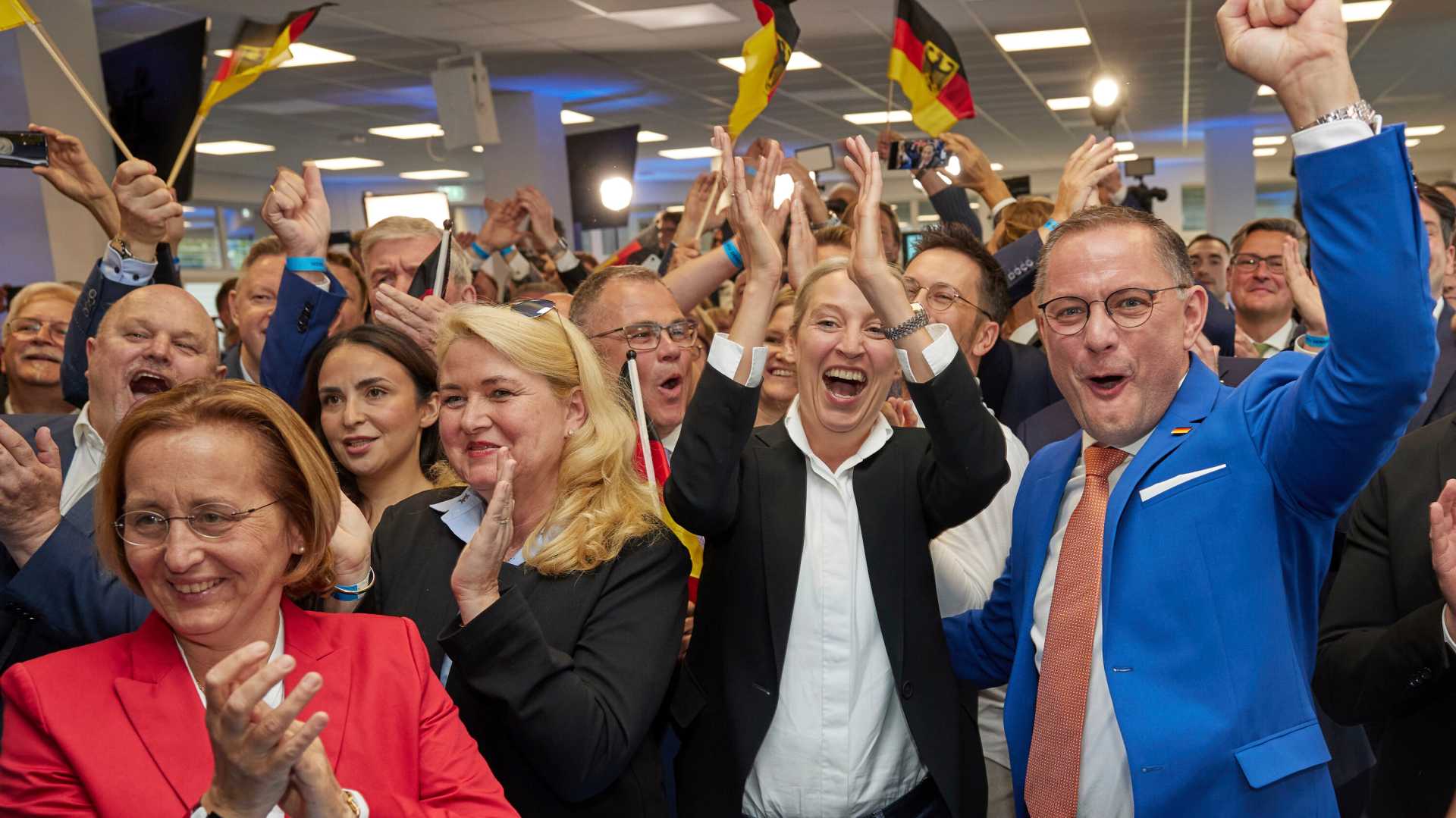Politics
Germany’s Young Conservatives Shift Support as Election Approaches

ROTENBURG, Germany — Germany’s young conservatives are rallying support ahead of the upcoming elections, with members of the Christian Democratic Union (CDU) youth wing expressing enthusiasm for their party’s leader, Friedrich Merz, who promises to revive the struggling economy. During a pre-election meeting on February 20, 2025, applause erupted after a speaker criticized the Greens’ climate policies.
Niels Kohlhaase, 25, a construction worker, voiced his optimism for Merz, predicting that he will decisively beat centre-left Chancellor Olaf Scholz in the election scheduled for February 23. “The construction sector has suffered so badly, and we need Merz to bring change,” Kohlhaase said. His shift from his parents’ support of Scholz’s Social Democrats to the CDU reflects a broader trend among German youth.
In the 2021 elections, the Greens enjoyed significant support from voters aged 18 to 24, bolstered by the Fridays for Future movement. However, as 2024’s European elections revealed, that support appears to have waned, with the CDU and the far-right Alternative for Germany (AfD) gaining traction among younger voters.
Polls indicate a rightward shift within Generation Z, defined as individuals born between 1997 and 2012, who will be voting for the first time in this upcoming election. At the CDU meeting, members praised Merz’s stance on immigration, emphasizing the need for a balanced migration policy to reduce the far-right AfD’s influence. “We will only manage to halve support for the far-right AfD with a reasonable migration policy,” said 21-year-old Josh Heitmann, from a farming family.
Historically, young German voters have leaned toward environmental and social justice causes. Current global events, such as the Ukraine war and economic challenges, have shifted priorities, leading to increased anxieties among these young voters, who are frequently exposed to extreme political messaging via social media.
Dr. Ruediger Maas, head of the Institute for Generation Research, noted that many young voters may be less concerned about the AfD’s rise due to disparate historical experiences with World War II compared to their parents. He’s observed a geographical divide, stating that young conservatives in western Germany typically support the CDU, while those in the former East lean toward the AfD.
In recent eastern regional elections, the AfD made substantial gains within the 18-24 age group, particularly at the expense of the Greens, according to polling firm Infratest dimap. Dr. Maas attributes this to historical demographic differences, as the former East experienced less immigration than the West.
With TikTok becoming a battleground for young political opinions, the AfD has effectively utilized the platform to reach younger voters. Meanwhile, mainstream parties have struggled to maintain their digital presence. The CDU has launched a social media initiative led by 32-year-old lawmaker Philipp Amthor to appeal to this demographic. “Of course, we are concerned about the AfD’s success among young people, the base of tomorrow’s voters,” Amthor said.
As the election approaches, around 30% of voters remain undecided, a significant portion of whom are younger voters, less likely than their parents to commit to a specific party. Cleo Heitmann, 19, echoed this uncertainty, stating she will make her decision only in the voting booth.












